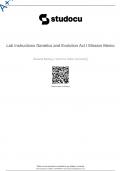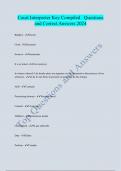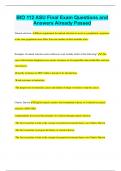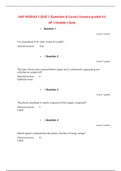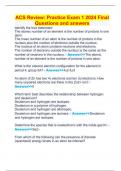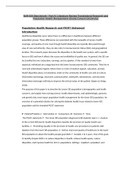Exam (elaborations)
AHA Pediatric Advanced Life Support Exam / PALS Exam (answered)
- Course
- Institution
AHA Pediatric Advanced Life Support Exam / PALS Exam (answered)Greetings Fellow Explorer: The decimation of the sunstalk forest has left many of Sarcannus' creatures without food or shelter. Your careful investigation of the environment points to a likely cause: metal poisoning. Fortunately, we...
[Show more]
